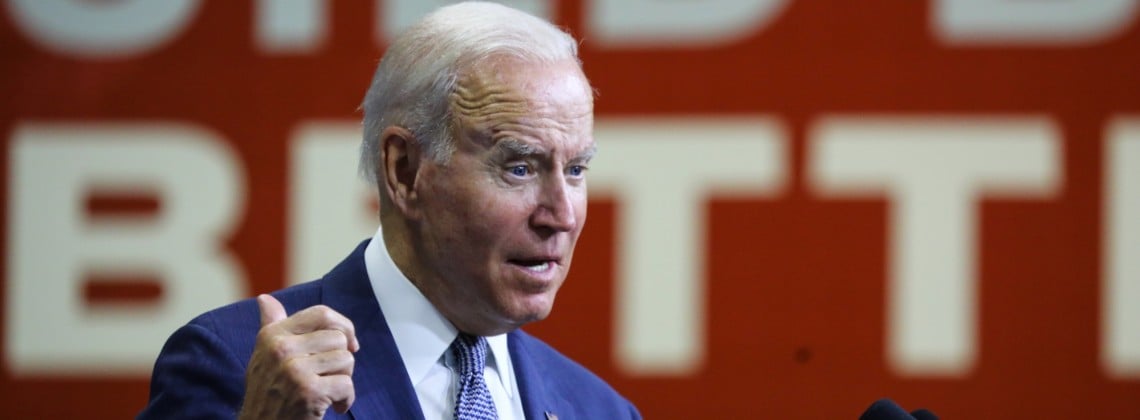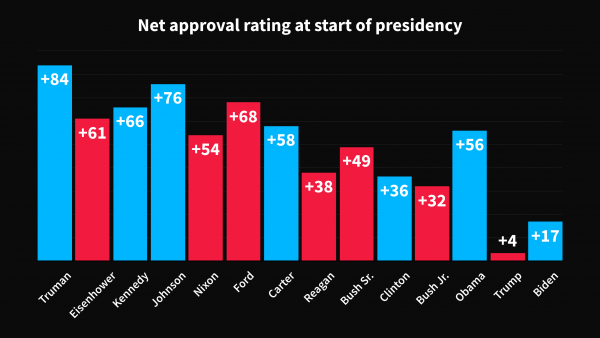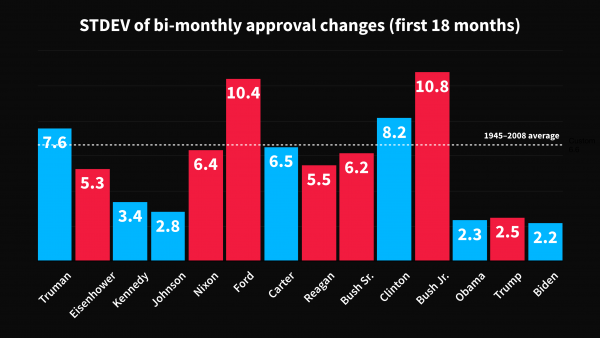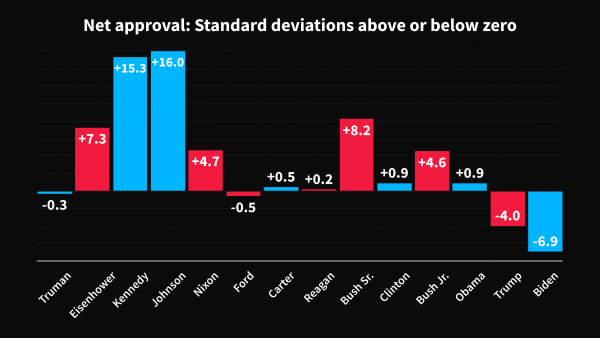
Are Biden's approval ratings even worse than they look?
Patrick Flynn
23 June 2022
Joe Biden currently holds the worst approval ratings of any post-war president, with a net rating of -15 according to FiveThirtyEight. While this number looks bad on the surface, some deeper analysis shows the reality could be even worse.
In the increasingly polarised political arena of the United States, rigid partisanship reigns supreme. Gone are the days of presidents starting out with high approval ratings and some good will from voters of the opposing party (Trump's +4 and Biden's +17 were by far the lowest initial approval ratings on record).

We also rarely see presidents having large swings in approval rating in short spaces of time anymore. The standard deviations in bimonthly approval for Obama (2.34%), Trump (2.50%) and Biden (2.17%) track at just one-third of the 1945–2008 average (6.64%). With this in mind, it may be much more difficult for Biden to turn around his floundering numbers than it was for, say, Ronald Reagan in the 1980s.

Considering the standard deviation of a particular president's historic ratings alongside the headline figure may allow us to control for the high levels of political polarisation in the US today, and there is some evidence to suggest that including it in a model yields slightly more fruitful results in predicting re-election chances (though it's still too early in the four-year term to predict with much confidence).
Standard deviation may provide us with a proxy for how hard or soft the public's opinions are and how likely they are to change. We could infer, for example, that the large spike in George W. Bush's approval ratings after 9/11 was caused by a temporary rally-round-the-flag effect, or that Donald Trump's consistent negative approval ratings early in his presidency indicated that voters had entrenched views on him.
Comparing him to an average president, Biden's approval ratings would be considered bad, but not irreparable. Plugging them into a model that also considers the president's previous Electoral College score gives Biden/the Democrats a 46% chance of re-election, broadly in line with the markets (44%). However, when factoring in the variation in each president's ratings, Biden sits nearly 7 standard deviations below zero. Modelling this particular figure sends the Democrats down to a 35% chance in 2024, far below the post-war re-election average of 70%. With that said, we don't have a lot of data points to go off, so it's hard to assess how useful this model might be.

However, with the US economic outlook looking poor over the next two years, the Democratic prospects for 2024 do not look rosy. Though the Democrats will hope that the Republicans renominate Trump in 2024 and give themselves a decent chance against another unpopular candidate, if they want to reduce the risk of losing the White House, they should probably start fleshing out plans for Biden's replacement.
Image of Joe Biden by Phil Murphy licensed under CC BY-NC 2.0
Patrick Flynn
23 June 2022


